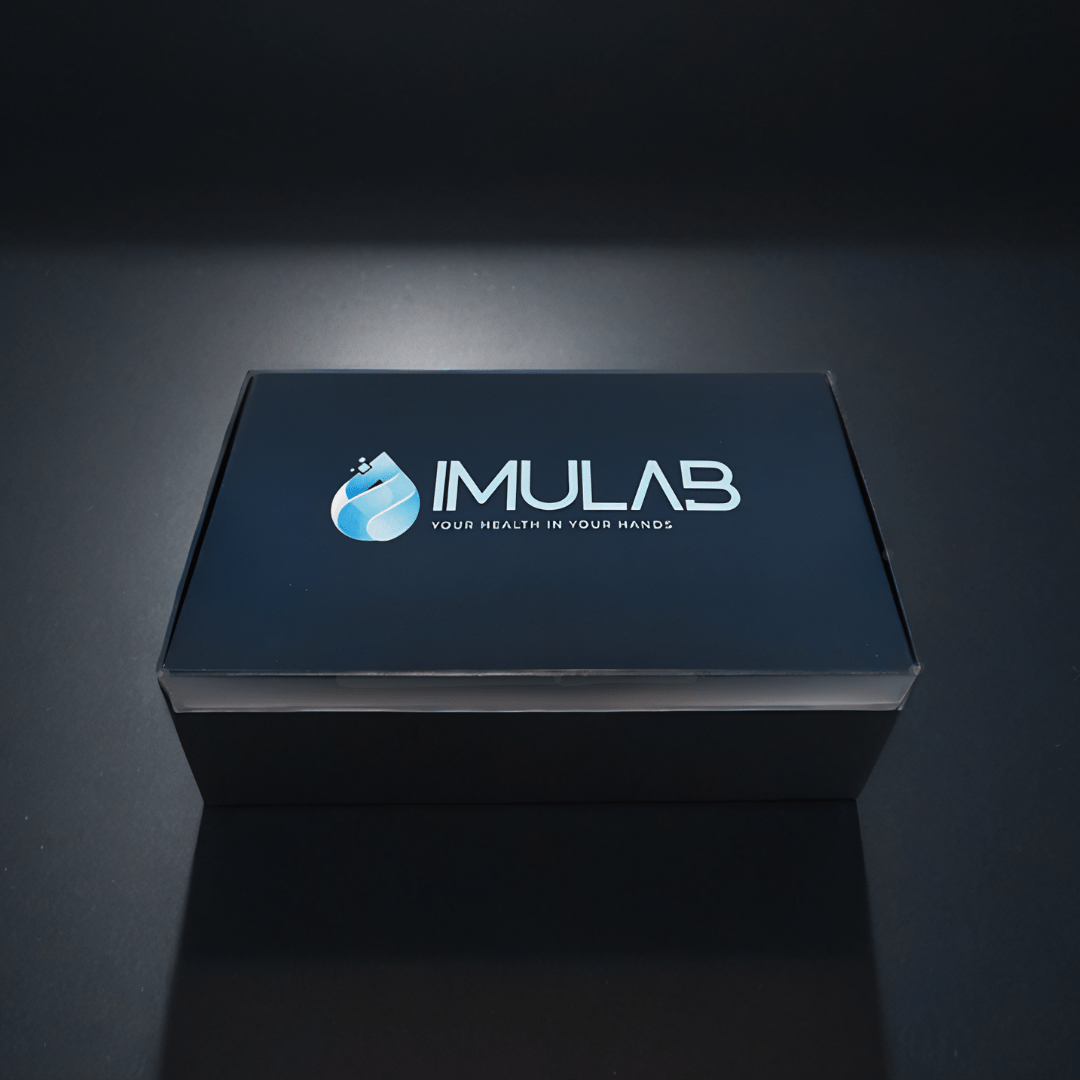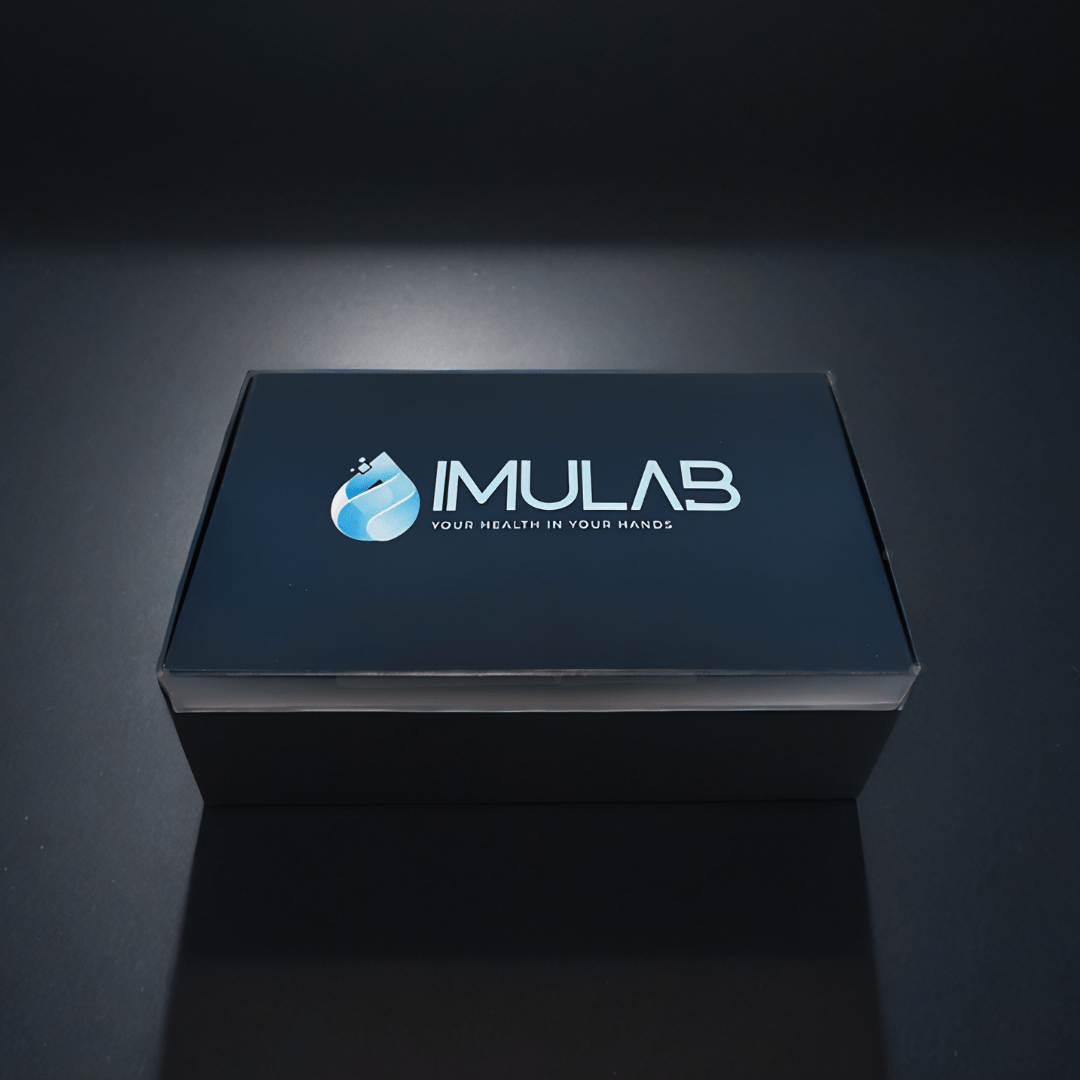IMULAB
Sports
Sports
How do you want to take your sample?
Please choose one option below-
Sample collection at a Superdrug Clinic +£35.00
Visit one of Superdrug's clinics across the UK where a healthcare professional will take your sample from a vein in your arm. We’ll email you instructions on how to book after we’ve processed your order.
-
Sample collection at home with a nurse +£59.00
Book an appointment for one of our nurses to visit your home and take your blood sample from a vein your arm.
-
Sample collection with your own healthcare professional Free
Make an appointment with a healthcare professional of your choice to have your venous blood sample taken. You will be responsible for arranging your appointment and any additional fees.
Couldn't load pickup availability
✅ Results expected within 3 working days
Upgrade your workout game with our best-selling Sports Performance Blood Test, designed to help you optimise your performance and overall health.
Why Choose This Test?
Whether you're a strength trainer, athlete, or fitness enthusiast, this comprehensive test measures key hormones and biomarkers to give you tailored insights into your health and fitness.
What’s Included in This Test?
- Key hormones: Including testosterone and oestradiol
- Vital health markers: Supporting your energy levels, muscle growth, and recovery time
Who Is This Test For?
- Athletes looking for a competitive edge
- Fitness enthusiasts aiming to boost energy and stamina
- Individuals focused on lean muscle development
- Those wanting to improve recovery time after workouts
What You’ll Gain:
- Insights into your hormone balance and biomarkers
- Data to tailor your training and nutrition plans
- A clearer understanding of your body’s performance needs
Convenient Testing Options:
- At-Home Finger-Prick Sample: Easy and convenient to perform.
- Superdrug Partner Clinics: Accessible across the UK for professional sample collection.
- Home Nurse Visit: Arrange for a nurse or your healthcare professional to collect a venous sample in the comfort of your home.
Fast & Secure Results:
Your results will be securely delivered via our online patient portal, typically available within two working days from receipt at our laboratory.
Take your performance and fitness goals to the next level—order your Sports Performance Blood Test today.



What's included in this test?
Red blood cells
Haemoglobin
Haemoglobin is a protein found in red blood cells that is responsible for transporting oxygen from the lungs to different tissues and organs throughout the body. It also plays a crucial role in carrying carbon dioxide, a waste product, from the tissues back to the lungs for elimination. The production and maintenance of healthy haemoglobin levels are essential for overall health and well-being.
When haemoglobin levels are low, a condition known as anemia can occur. Anemia can have various causes, including nutritional deficiencies, chronic diseases, blood loss, or impaired production of red blood cells. Symptoms of anemia may include fatigue, weakness, shortness of breath, pale skin, dizziness, and irregular heartbeats. It can lead to a reduced capacity to deliver oxygen to the body's tissues, affecting overall energy levels and organ function.
On the other hand, high levels of haemoglobin, referred to as polycythemia, can occur in certain conditions such as lung disease, congenital heart defects, or bone marrow disorders. Polycythemia can make the blood thicker and more viscous, which may lead to complications like blood clots, heart attacks, or strokes. Symptoms may include headache, dizziness, fatigue, blurred vision, and increased blood pressure.
Maintaining optimal haemoglobin levels is important for proper oxygen transport and overall health. If you suspect any abnormalities in your haemoglobin levels, it is recommended to consult a healthcare professional for appropriate evaluation, diagnosis, and treatment.
Haematocrit
Red cell count
The Red Blood Cell (RBC) Count is a test that evaluates the quantity of red blood cells present in the blood. Red blood cells play a crucial role in transporting oxygen from the lungs to the body tissues, where it is utilized for various energy processes like respiration and movement. They also carry carbon dioxide from the body tissues back to the lungs, where it can be removed from the body through exhalation.
MCV
MCH
MCH stands for mean corpuscular haemoglobin and measures the average amount of haemoglobin in each of your red blood cells.
MCHC
RDW
White blood cells
White cell count
Neutrophils
Neutrophils are the predominant type of white blood cell in the human body that assist in combating infections. They are the primary defence mechanism that detects and destroys pathogens before other types of white blood cells are activated. If the number of neutrophils in the blood is reduced, the body becomes more susceptible to illnesses and infections.
Lymphocytes
Lymphocytes are a group of white blood cells that play a crucial role in the body's immune system by fighting against bacterial and viral infections. They are specialized white blood cells that can recognize and differentiate between different foreign organisms that invade the body. Apart from their role in fighting infections, they also produce antibodies and memory cells that can help prevent future infections from the same germ. Lymphocytes consist of T cells, B cells, and natural killer cells.
Monocytes
Eosinophils
Basophils
Hormones
Oestradiol
Oestradiol is a steroid hormone that is primarily produced in the ovaries of women and to a lesser extent in the testes of men. It is one of three types of estrogen and has important functions in regulating the female reproductive system, as well as promoting breast tissue growth and maintaining bone density. Oestradiol levels naturally fluctuate throughout the menstrual cycle, peaking at ovulation in pre-menopausal women. As women age, their oestradiol levels decrease and eventually stop altogether with menopause. Low levels of oestradiol can lead to symptoms commonly associated with menopause such as hot flushes, night sweats, and mood swings. Additionally, low levels of oestradiol can increase the risk of developing osteoporosis.
Testosterone
Proteins
Total protein
Total Protein is the total amount of protein in the blood, which includes both albumin and globulin. These proteins have several functions such as maintaining blood volume, transporting nutrients, and protecting the body against infection. Abnormal levels of total protein can suggest malnutrition, liver disease, or kidney disease.
Globulin
Globulin is a group of proteins synthesized by the liver and the immune system. They have different functions such as binding with haemoglobin, transporting metals like iron, and fighting infections. Immunoglobulins, a type of globulin, are antibodies that play a critical role in the immune system's response to infections.
Albumin
Albumin is a protein produced mainly by the liver that helps to maintain the osmotic pressure of the blood, keeping water inside the vessels. It also aids in the transport of nutrients, medications, and other substances throughout the body, and is important for tissue growth and repair. Additionally, albumin carries hormones in the blood, and measuring its levels can provide information about the amount of hormone available to the tissues.
Kidney health
Urea
Measuring the levels of urea in the blood can give an indication of how well the liver and kidneys are working. Urea is a waste product produced by the liver when it breaks down proteins, and it is transported to the kidneys for filtering and removal from the body in the form of urine. Normal results do not rule out severe kidney damage in one kidney if the other kidney is functioning well
Creatinine
eGFR
The eGFR, or estimated glomerular filtration rate, is a measurement that evaluates kidney function by estimating the amount of blood filtered by the kidneys. The kidneys contain tiny filters called glomeruli that are responsible for removing waste products from the blood. If these filters fail to work properly, kidney function can be affected. The eGFR is calculated using a person's age, gender, ethnicity, and serum creatinine levels to provide an estimate of their actual glomerular filtration rate.
Liver health
ALP
Alkaline phosphatase (ALP) is an enzyme that is present in the liver, bones, and other tissues. Elevated levels of ALP in the blood can be an indicator of various liver or bone disorders, or a result of certain medications.
ALT
ALT is an enzyme that is present mostly in the liver, and to a lesser extent in the heart, muscles, and kidneys. When the liver is damaged, ALT is released into the bloodstream, making it a useful marker of liver inflammation and potential damage caused by factors such as alcohol, fatty liver, drugs, or viral infections like hepatitis.
Gamma GT
Thyroid hormones
TSH
Thyroid stimulating hormone (TSH) is a hormone produced by the pituitary gland that regulates the production of thyroid hormones thyroxine (T4) and triiodothyronine (T3) by the thyroid gland. TSH levels increase when thyroid hormone levels are low, and decrease when thyroid hormone levels are high. Abnormal TSH levels can indicate problems with the thyroid gland, such as under or overproduction of thyroid hormones. It can also be a result of pituitary gland disorders.
Free thyroxine
Thyroxine (T4) is one of the two primary hormones produced by the thyroid gland. It plays a vital role in regulating metabolic processes in the body. T4 is mostly bound to carrier proteins in the blood, and only a small amount of it exists in its free or unbound form. In contrast to free T3, free T4 is relatively inactive, but it is still essential for normal body function. When the body requires thyroid hormone, free T4 is converted to the more active form, free T3.
Iron status
Iron
Iron is a mineral that is necessary for the body to function properly. It is an essential component of haemoglobin, a protein present in red blood cells that transports oxygen throughout the body. Insufficient iron in the body can lead to a decrease in haemoglobin levels and result in symptoms such as fatigue, dizziness, and shortness of breath. However, measuring serum iron alone may not provide an accurate picture of iron levels as it can be influenced by the recent intake of iron-rich foods. Therefore, iron is typically evaluated alongside other markers in an iron status test.
Ferritin
Clotting status
Platelet count
Diabetes
HbA1c
Haemoglobin A1c (HbA1c), also known as glycated haemoglobin, provides a measure of average glucose levels in the blood over a longer period than a simple blood glucose test. When glucose attaches to the haemoglobin in red blood cells, it forms glycated haemoglobin, which can be used to estimate the average level of sugar in the blood over the preceding 2-3 months, as red blood cells have a lifespan of around 12-16 weeks.
Cholesterol status
Total cholesterol
Cholesterol is a crucial lipid or fat present in the body. Despite its infamous reputation, it serves significant functions such as building cell membranes and synthesizing crucial hormones such as testosterone and oestradiol. The liver is responsible for manufacturing cholesterol, but it also originates from the food we consume. Although various types of cholesterol exist, the two primary elements of total cholesterol are HDL (high-density lipoprotein), which is defensive against heart disease, and LDL (low-density lipoprotein), which can contribute to cardiovascular disease when present in high levels. A total cholesterol result on its own has limited value in assessing the risk of heart disease. High levels of HDL cholesterol can cause an elevated total cholesterol result, yet may provide protection against heart disease. Conversely, an individual can have a normal total cholesterol level but have low levels of protective HDL cholesterol. The most significant factors are the levels of HDL and LDL cholesterol, and the proportion of total cholesterol that comprises protective HDL cholesterol. The cholesterol profile presents a detailed breakdown of the components of total cholesterol.
LDL cholesterol
HDL cholesterol
Non HDL cholesterol
The breakdown of your total cholesterol comprises two primary constituents, namely HDL (good) cholesterol and LDL (bad) cholesterol. However, harmful cholesterol types in your blood extend beyond LDL and encompass VLDL (very low-density lipoproteins) and other lipoproteins that are believed to be even more detrimental than LDL cholesterol. Non-HDL cholesterol is obtained by deducting your HDL cholesterol value from the total cholesterol value. Consequently, it incorporates all the non-protective and potentially harmful cholesterol in your blood, not just LDL. Thus, it is considered a better indicator of cardiovascular risk compared to total cholesterol and LDL cholesterol. The recommended non-HDL cholesterol level is below 4 mmol/L.
Total cholesterol: HDL
Triglycerides
Sampling special instructions
Prepare for your Sports Hormone Blood Test by following the instructions contained within your test kit. To ensure accurate results, it is recommended to take your sample before 10am. In preparation for the test, avoid engaging in heavy exercise for at least 48 hours beforehand. Additionally, refrain from consuming fatty foods for at least eight hours prior to the test; fasting is not required. If you are a menstruating individual, it is optimal to take the test between days two and five of your menstrual cycle, with day one being the first day of your period. However, if you do not experience menstrual cycles, the test can be taken at any time.
Please note that hormonal contraception can impact the test results. For more accurate results, consider taking a break from hormonal contraception and using barrier methods instead. If you use hormone gels, pessaries, patches, or tablets, it is advisable to opt for a venous sample to minimize the potential for contamination often observed with finger-prick tests. If you administer any hormone supplements, ensure that your fingers have not come into contact with them for at least four weeks prior to the test, as hormones can be absorbed deep within the skin and persist despite thorough handwashing. Lastly, avoid taking biotin supplements for two days before the test, and consult with your doctor if you have been prescribed biotin.



